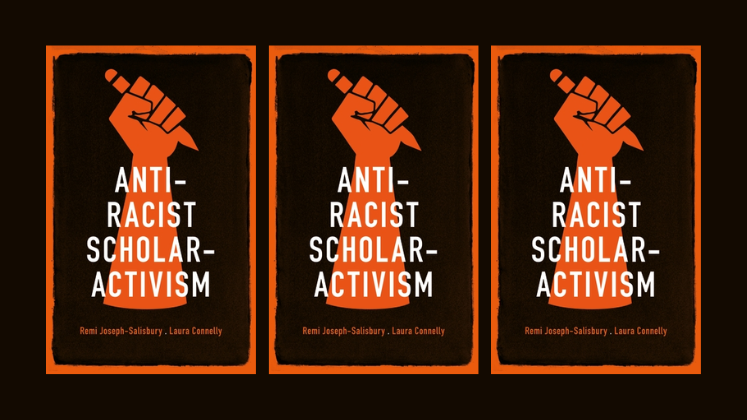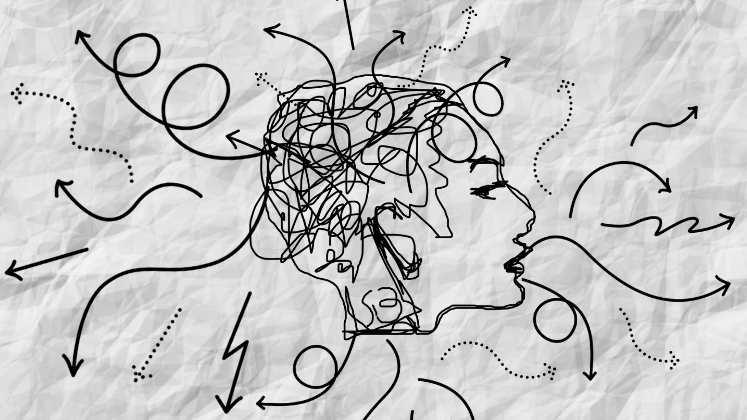This review originally appeared on LSE Review of Books. If you would like to contribute to the series, please contact the managing editor of LSE Review of Books, Dr Rosemary Deller, at lsereviewofbooks@lse.ac.uk
In Critical Affect: The Politics of Method, Ashley Barnwell challenges the clear-cut separation of critical and affective approaches, examining how longstanding ideas of critique and criticism are applied by the recent wave of affect theory across the social sciences. As much a methodological reflection as a critique of existing literature, Barnwell offers both a meditation on how to read with ‘epistemic charity’ and a very timely provocation on what it means to be in academia today, writes Anna Nguyen.
Critical Affect: The Politics of Method. Ashley Barnwell. Edinburgh University Press. 2020.
With the ever-blurred boundaries between academic language and everyday repertoires, the terms ‘affect’ and even ‘affect theory’ have become widespread. A 2019 New Yorker essay, ‘Affect Theory and the New Age of Anxiety’, includes an analysis of Cruel Optimism by Lauren Berlant, herself an interdisciplinary theorist who weaves together literary and cultural studies with affect theory. In the essay, author Hua Hsu provides a brief genealogy of affect theory stemming from the field of psychology to the more humanities-minded fields of social science and literary studies. Alongside Berlant, familiar names such as Sara Ahmed, Sianne Ngai and Ann Cvetkovich are also cited in the piece, all of whom are noted for their hybrid academic and densely poetic prose. The arguments and critiques of the article, about attending to different emotions and making sense of them during challenging phases of political life, are framed using affect as a narrative device.
an analysis of Cruel Optimism by Lauren Berlant, herself an interdisciplinary theorist who weaves together literary and cultural studies with affect theory. In the essay, author Hua Hsu provides a brief genealogy of affect theory stemming from the field of psychology to the more humanities-minded fields of social science and literary studies. Alongside Berlant, familiar names such as Sara Ahmed, Sianne Ngai and Ann Cvetkovich are also cited in the piece, all of whom are noted for their hybrid academic and densely poetic prose. The arguments and critiques of the article, about attending to different emotions and making sense of them during challenging phases of political life, are framed using affect as a narrative device.
As much as affect and affect theory, as terms, are increasingly used in our critical essays, affect as a method has rarely been discussed. In some ways, it has become a word that we have taken for granted. In sociologist Ashley Barnwell’s Critical Affect: The Politics of Method, the attention is not necessarily on how to integrate affect into one’s own scholarship; instead, Barnwell is interested in how the old idea of critique and criticism is applied by the recent wave of affect theory in the social sciences.

In the introduction, Barnwell provides a historical overview of unresolved intellectual tensions proposed by poststructural critiques and subsequent methods that embrace emotional truths and embodied situations, or what we now call affect. As much a methodological reflection as it is a critique of existing literature, Barnwell’s book offers both a meditation on how to read with ‘epistemic charity’ and a very timely provocation on what it means to be in academia in this current expert-focused climate that, at once, tries to attend to and value emotions while also upholding scientific rigour in this alleged ‘post-truth’ era full of paranoia (Chapter Four).
Whether or not affect is a new turn in theory and method, Barnwell’s primary argument is how ‘the perceived split between poststructural critique and affect theory’ is simply a continuation of the ongoing interdisciplinary debate ‘about which genre best captures the emotional complexity of social life, a debate that remains provocative and unresolved’ (1). Barnwell writes:
:
Scholars are often asked to choose structure or affect, critique or creativity, detection or description. But should our notion of methods be so fixed and divided? Indeed, might social life be more complex than a straightforwardly critical or affective approach can truly capture? (2)
Barnwell’s intervention is to ‘unsettle the claim that critique cannot engage with the mutable dynamics of affect’ (2). How we value truth, facts and evidence is a question of why we value certain expertise over other forms of knowing. One cannot ignore the high-level concerns of categories, subscriptions and genres, all of which, Barnwell observes, are forms of social cohesion and exclusion (3).
Because of the close examination of what interdisciplinarity even means, Barnwell’s surveyed literature is seemingly interdisciplinary as well. Weaving together authors who are constantly cited by those interested in affect – Ahmed, Berlant, Brian Massumi, Ngai, Eve Kosofsky Sedgwick and Nigel Thrift – with social theorists (sociology), actor-network theorists (specifically Bruno Latour and John Law), feminist science studies and literary studies, Barnwell is acknowledging the artificial imposition of boundary work within these fields and theorists. And although the boundaries are artificial, the stakes are not; these discussions on interdisciplinarity invoke the ethics of representation and the challenges of choosing any method (12). Such discussions have been consequential since at least the mid-century debates between literary scholars and scientists, or the ‘two cultures’ debate, and the science wars of the 1990s. These divisions triggered uncertainty regarding the nature of fact and interpretation, or the relation of truth and genre, and split scholars based on the disciplinary genres they use. Do facts verify knowledge, or are facts verified through values (20)? More paradigmatic divides which had already existed within the academy became less dormant: objective and subjective realities; facts and fiction; natural and cultural phenomena.
‘The critique of critique’, Barnwell notes, became the pinnacle of scholars tired and dissatisfied by mere critique. Citing Latour’s famously rhetorical meditation on the possibility of critique running ‘out of steam’, scholars yearned for alternative forms of representation in academic genres. Critique has been cast aside in pursuit of new methods (30). Barnwell acknowledges that unfulfillment from current theories and methods of course creates a ‘new’ method (50), though she cautions against viewing theoretical innovation as a linear path to progress (40). New methods only obfuscate longstanding questions and conversations about genre and ethics, she emphasises.
Juxtaposing the social scientist’s genre with novelists, including Émile Zola, Charles Dickens and H.G. Wells, who declared themselves as sociologists, she again reiterates that method, specifically writing as a method, is itself a form of social life (35-38). Even if the social scientist conducting fieldwork writes in a way that deviates from the conventional structure, ‘it does not change the essential reality that the social scientist is the one to interpret and represent’ (42). This argument about interpreting and representing the other’s social and lived reality and the authorial voice extends to Barnwell’s other examples of narrative journalism, nonfiction and memoir, all of which combine emotional testimonies and truth-telling and the ethical question of capturing the true story (45). Other examples, including creative writing and performance, are pursued and promoted as better avenues for social research (88).
If the role of affect in theory is to promote creativity over critique, the question is not about claiming intellectual contributions as new, novel or cutting-edge in theory; rather, the more poignant and difficult question is to ask how life is lived while thinking about knowledge claims, values, truth and representation (99). If affect theory is different from other existing social theories, how so and in what ways? Barnwell is not asking for a new method, but seeks to understand how feelings of paranoia and suspicion might be taken as more than just mere critique.
Whose voices tell whose stories, Barnwell reminds us to ask ourselves. This perennial question requires us to be reflexive readers and not take for granted that we in academia have also used particular theorists, theories and methods as some form of truth in our own work. Therein lies the tension of being the responsible theorist and a member of a public. Because of this current era of modernity and reflexive language practices, the blurred boundaries between reader, writer and academic have made it difficult to know whose genres and methodology matter more, whose voices continue to be dominant and whose continue to be excluded. Affect, as Barnwell observes throughout her monograph, has not resolved this, but critical scholars can be more reflective if they pursue affect and these questions as part of an ongoing inquiry into social life and representation.
Note: This review gives the views of the author, and not the position of the LSE Review of Books blog, or of the London School of Economics.
Image Credit: Photo by Meagan Carsience on Unsplash.







